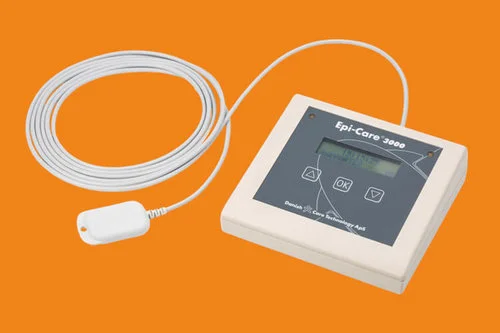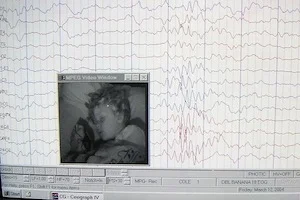Tine has had an epilepsy alert from Danish Care Technology for more than two years. Social and health assistants Jette and Astrid of Tines care team are keen to see right away if she has a seizure. Jette says, "We are responsible for the care and can treat the consequences of a seizure as best we can when we receive the message of the alarm. Without the alarm, it would be much harder to detect the seizures, and an undetected seizure can be fatal to Tine."
Read More"But I was very worried she was going to get a lot of seizures that would not be detected if I slept at night." For a while Birgitte therefore put the alarm clock each hours every night so she could check on Christina. Of course, it was terribly tiring never to sleep through the night.
Read MoreThe technology behind the portable Epi-Care alarms is clinically tested. This means that Danish and German doctors have systematically and scientifically studied the alarms effect on people with epilepsy.
The results are published in the scientific journal Epilepsia. The Journal publishes original articles on all aspects of epilepsy, clinical and experimental.
Read MoreEpilepsy occurs in all age groups, but it most often occurs in childhood. Half of all people with epilepsy are diagnosed before the age of 10.
The most children’s seizures can be effectively controlled with medication, however for some, medicine is not enough to control the seizures. They and their families must live with unpredictable epileptic seizures.
Read MoreThere are many different types of epileptic seizures. The tonic-clonic cramp is well know, and the one people tend to think of when imagining a epileptic seizure. It has been known as a ”grand mal” but that term is fading out of use.
The tonic-clonic seizure comes it two phases. The seizure starts with a sudden rigidity in the body called the tonic phase. One may feel air being pushed out of the lungs, and it becomes impossible to move. Hereafter one loses conscience, fully or partly, and falls to the ground.
Read More




